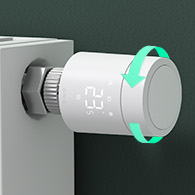- Joined
- 6 Jan 2022
- Messages
- 2
- Reaction score
- 0
- Country

Hi all..
This is my first forum post!
I am wanting to switch over to an ASHP from my current gas combi (which is perfectly adequate)
Usethesun are a company who came out, surveyed the house, carried out a heat loss calculation etc. They have recommended a 9kw LG unit. All rads will be upgraded. I’m happy with the price, and will potentially receive annual payments from the government to offset the cost. All good stuff.
What I would like to know, are real life electricity costs for running a system.
I have a fairly standard 3 bed semi. Cavity walls have been filled, plenty of fluff in the loft and reasonable double glazing. No underfloor heating, all radiators.
We don’t like living in a sauna.. at the moment the living areas are set at 20, the bedrooms slightly cooler. Gas is obviously set to go mental so some decent savings there.. but I’m concerned the electric bills will skyrocket with a retro fitted system.. then I’ll be stuck with a very expensive system that costs a fortune to run… does anyone run a comparable system??
Sorry for the essay..
many thanks
This is my first forum post!
I am wanting to switch over to an ASHP from my current gas combi (which is perfectly adequate)
Usethesun are a company who came out, surveyed the house, carried out a heat loss calculation etc. They have recommended a 9kw LG unit. All rads will be upgraded. I’m happy with the price, and will potentially receive annual payments from the government to offset the cost. All good stuff.
What I would like to know, are real life electricity costs for running a system.
I have a fairly standard 3 bed semi. Cavity walls have been filled, plenty of fluff in the loft and reasonable double glazing. No underfloor heating, all radiators.
We don’t like living in a sauna.. at the moment the living areas are set at 20, the bedrooms slightly cooler. Gas is obviously set to go mental so some decent savings there.. but I’m concerned the electric bills will skyrocket with a retro fitted system.. then I’ll be stuck with a very expensive system that costs a fortune to run… does anyone run a comparable system??
Sorry for the essay..
many thanks

